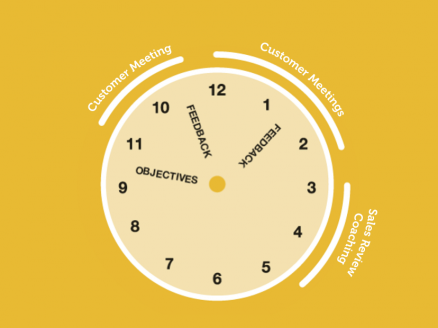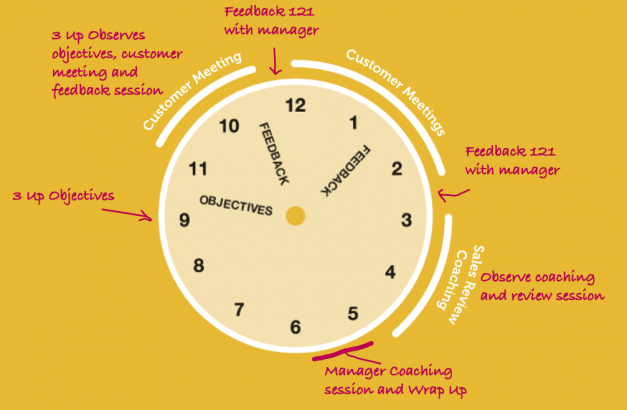Sales Leaders & Managers – Who coaches you?
When was the last time you received coaching? One of your roles is to coach your team, whether it is skills coaching, providing feedback, doing appraisals, 121’s, huddles etc, but when was the last time someone watched you and gave you feedback?
When people grow into Leadership roles they seem to think they have made it, and ego comes into play. They feel that they should know what to do, and they are doing it!. Wrong, they might know what to do, but over the past 20 years of coaching executives, leaders and managers, very rarely do I see the models actually be put to use, why – because nobody acts as their coach. I am constantly amazed at the lack of implementation from Sales Managers and Leaders of tools that they may have at their disposal for coaching, whether it is a coaching framework, appraisal system, or other skills learnt on a training programme. But to be fair, this isn’t related to just sales either, it is organisational wide, from the top down.
3 Up Coaching
The best thing I have seen, and delivered, is what I call ‘3 Up’ coaching. 3 Up in essence is where the managers coach comes along to the meeting as an observer to simply provide coaching and feedback to the manager after the meeting.
 Typical Sales Accompaniment
Typical Sales Accompaniment
Let’s take an example where a Manager is going to spend the day with their field sales rep. They meet up front and clarify the objectives for the day and perhaps what they are going to be focusing on. They go to a customer meeting, manager delivers feedback and reviews the meeting. They then go onto the afternoon for one or two more appointments and the manager provides some feedback after each session. In the afternoon they then sit down and do a 121 sales review, some coaching and perhaps a performance review
Sales Accompaniment with 3up Coach
The 3Up coaching follows the similar pattern but the 3 Up coach will meet with the Manager prior to the event to do the initial coaching conversation and define the objectives for their coaching day.

They both go into the objectives meeting with the Sales Rep, where the manager run their typical conversation, objective setting and day plan. The 3 Up coach observes the objectives, attends the customer meeting (doesn’t officially take part) and then sits in for the review and feedback after the meeting.
After the feedback session, the 3Up coach then provides coaching and feedback to the manager. This often takes place in the car as they drive to the next meeting. The same plays out in the afternoon for the rest of the day. At the end of the day the 3Up coach then has a 121 coaching and feedback session with the manager.
The important things to consider is:
- To let the customer know that the person is attending as a coach.
This normally works really well as it indicates to the customer that the organisation takes their people development seriously. I have always introduced myself as someone who is their to ensure that we are giving a great customer experience. This is again greeted with appreciation. - Let the sales person know the purpose of the 3Up visit
The sales person can sometimes feel overwhelmed that 2 people are coming out with them. If the manager explains the purpose is for the manager to be coached and supported, it tends to reinforce their commitment to personal development and can make the sales person feel more comfortable that their boss also gets observed and feedback, not just them! - The coach is their for the manager, not the sales person
It is easy to get caught up in the customer meeting and forget the purpose of the 3Up coach is to coach the manager, not the sales person and not the deal. The sales person may want feedback from the 3up coach, but that is not their role today.
Implementing 3Up coaching can also take place across the organisation not just the sales organisation. Think about it, the managers need help, support and feedback as well, not just team members. Coaching fosters a growth mindset, encouraging managers to continuously learn and adapt to the ever-evolving business environment. It also enhances emotional intelligence, essential for effective communication and building relationships.
Managers who receive coaching are more likely to be successful in achieving organisational goals, improving team morale, and managing conflicts. Moreover, coaching has a cascading effect as coached managers often pass on their learnings to their teams, enhancing overall organisational productivity and fostering a culture of continuous learning and development.
More information on Sales Coaching can be found in the latest Salecology Book. Click on the image to learn more.


